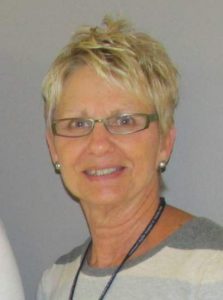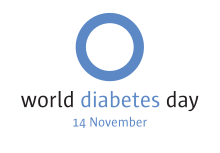Live What You Love: Mary Lou Wright Retires after Four Decades at BCH
 Mary Lou Wright has a quote above her computer that states, “Live What You Love.” For all but a few months of her entire professional career, Wright has been part of the fabric of Bertrand Chaffee Hospital and its Physical Therapy Department, doing exactly that: living what she loves. That career includes a time period that has extended for more than half the hospital’s history.
Mary Lou Wright has a quote above her computer that states, “Live What You Love.” For all but a few months of her entire professional career, Wright has been part of the fabric of Bertrand Chaffee Hospital and its Physical Therapy Department, doing exactly that: living what she loves. That career includes a time period that has extended for more than half the hospital’s history.
Starting in June 1975, Wright applied her bachelor of science degree in physical therapy from the University at Buffalo to part-time roles at Fiddler’s Green Manor and Bertrand Chaffee Hospital. “Within a year, BCH asked me to come here full time,” said Wright. Three years later her supervisor relocated to Florida, and she was offered the director of rehab position.
In her first years at BCH, most patients were seen on an outpatient basis. “Back then, therapists were not allowed to evaluate patients,” Wright offered. “We would get a prescription from the physician basically telling us what to do.”
She continued, “As the profession grew, physical therapists became recognized as an integral part of the patient care team. We now perform in-depth evaluations to determine a diagnosis, individual plan of care, and prognosis.”
When asked about how physical therapy has changed across five decades, Wright explained, “So much of the basics of PT have always been the same – heat and cold, massage, electrical stimulation, ultrasound, exercise – those things have not changed.”
She offered this explanation, “But now, the field has expanded to a more hands-on approach, such as manual techniques, and instrument-assisted soft tissue mobilization. There are new advances in aquatic therapy, vestibular rehab, orthotic and prosthetic devices, and even robotic technology…Patients can also have direct access to PT without a prescription, but with some limitations attached.”
It is the responsibility of the physical therapist to determine the best plan of care for each individual. “In a way, we’re like mechanics,” said Wright. “We help with the fine tuning and getting patients to run – or walk and function – better. It’s all about quality of life.”
Wright initially wanted to be a teacher, but when she was entering college in the 1970s, the market for educators was flooded. But for the past 43 years, she has served as a teacher in a different way, working with thousands of patients on their road to recovery from injuries, surgeries and chronic conditions.
“I have always felt I became what I was meant to be, and have loved what I do,” Wright remarked. “I can only hope that I have had some positive impact on the lives of those we call our patients, many of whom I am now lucky to call friends. It is the lives we touch and the relationships we develop that make healthcare such a unique field. I will miss that the most.”







 Melanye Deuble-Hankins will join the Bertrand Chaffee Hospital Primary Care Center on Monday, November 27 as a physician assistant.
Melanye Deuble-Hankins will join the Bertrand Chaffee Hospital Primary Care Center on Monday, November 27 as a physician assistant. November 14 is
November 14 is